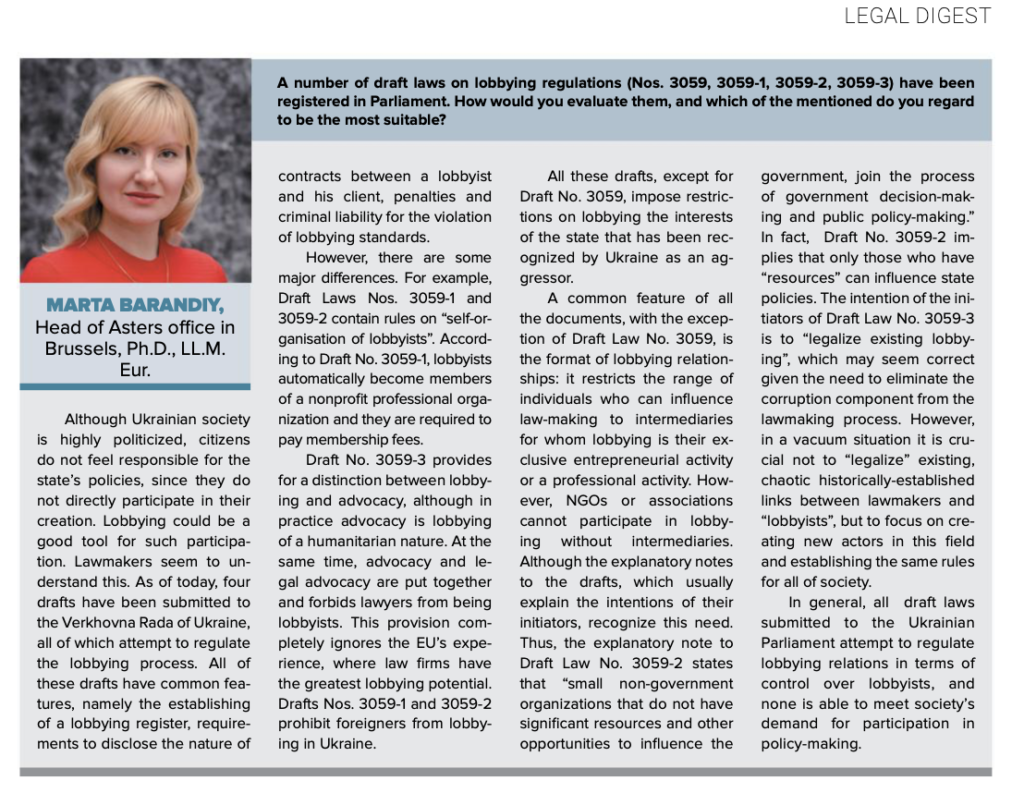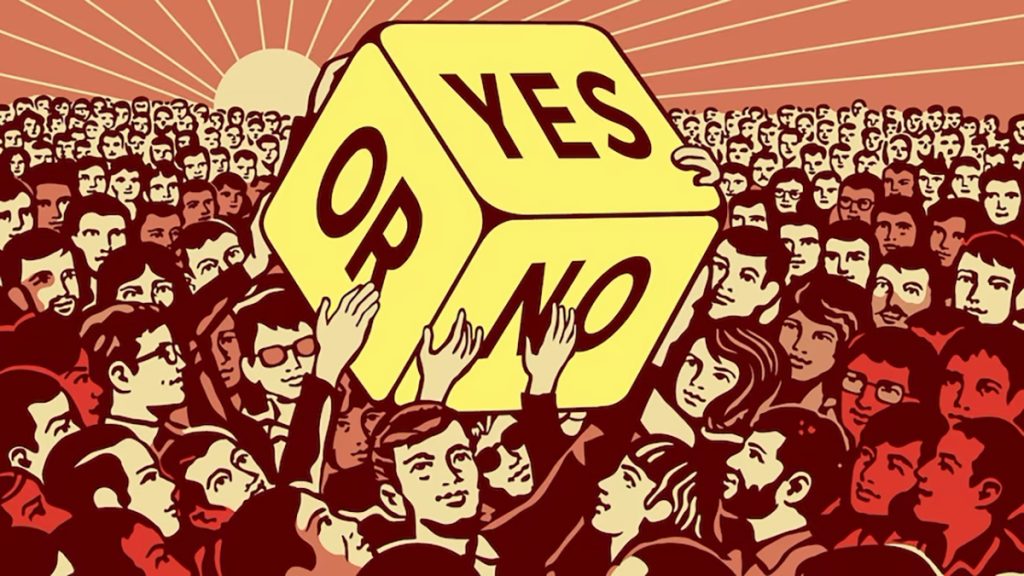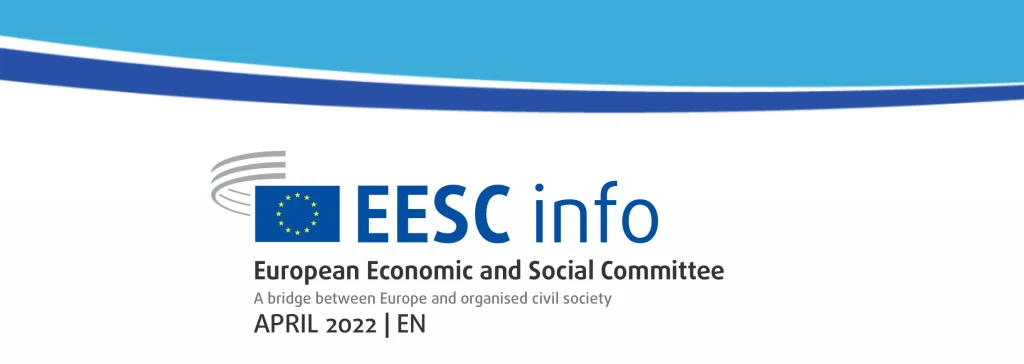Although Ukrainian society is highly politicized, citizens do not feel responsible for the state’s policies, since they do not directly participate in their creation. Lobbying could be a good tool for such participation. Lawmakers seem to understand this. As of today, four bills have been submitted to the Verkhovna Rada of Ukraine, that attempt to regulate the process of lobbying. All of these bills have common features, namely the establishing of a lobbying register, requirements to disclose the nature of contracts between a lobbyist and his client, penalties and criminal liability for violations of lobbying standards.
However, there are some major differences. For example, Bills 3059-1 and 3059-2 contain rules on “self-organisation of lobbyists”. According to the Bill 3059-1, lobbyists automatically become members of a nonprofit professional organization and they are required to pay membership fees.
Bill 3059-3 provides for a distinction of lobbying from advocacy, although in practice advocacy is lobbying yet of humanitarian nature. At the same time, advocacy and legal advocacy are put together forbidding lawyers to be lobbyists. This norm completely ignores the EU experience where law firms have the greatest lobbying potential.
Bills 3059-1 and 3059-2 prohibit foreigners from lobbying in Ukraine.
All these bills except for the Bill 3059 impose restrictions on the lobbying of the interests of the state that has been recognized by Ukraine as an aggressor.
A common feature of all the bills, with the exception of the Bill 3059, is the format of lobbyingrelationships: it restricts the range of individuals who can influence law-making to intermediaries for whom lobbying is their exclusive entrepreneurial activity or a professional activity. However, NGOs or associations cannot participate in lobbying without intermediaries. Although the explanatory notes to the bills, that usually explain the intentions of their initiators, recognize this need. Thus, the explanatory note to the Bill 3059-2 states that “small non-governmental organizations that do not have significant resources and other opportunities to influence the government, join the process of government decision-making and public policy-making.” But in fact, the Bill 3059-2 implies that only those who have “resources” can influence the policies of the state.
The intention of the initiators of the Bill 3059-3 is to “legalize the existing lobbying”, which may seem correct given the need to eliminate the corruption component from the lawmaking process. However, in a vacuum situation it is crucial not to “legalize” the existing chaotic historically established links between lawmakers and “lobbyists”, but to focus on creating new actors in this field and establishing the same rules for the whole society.
In general, all the bills submitted to the VRU attempt to regulate lobbying relations in terms of control over lobbyists, and none is able to meet society’s demand for participation in the policy-making.
Source: The Ukrainian Journal of Business Law https://issuu.com/olga.usenko/docs/ujbl__4_2020





